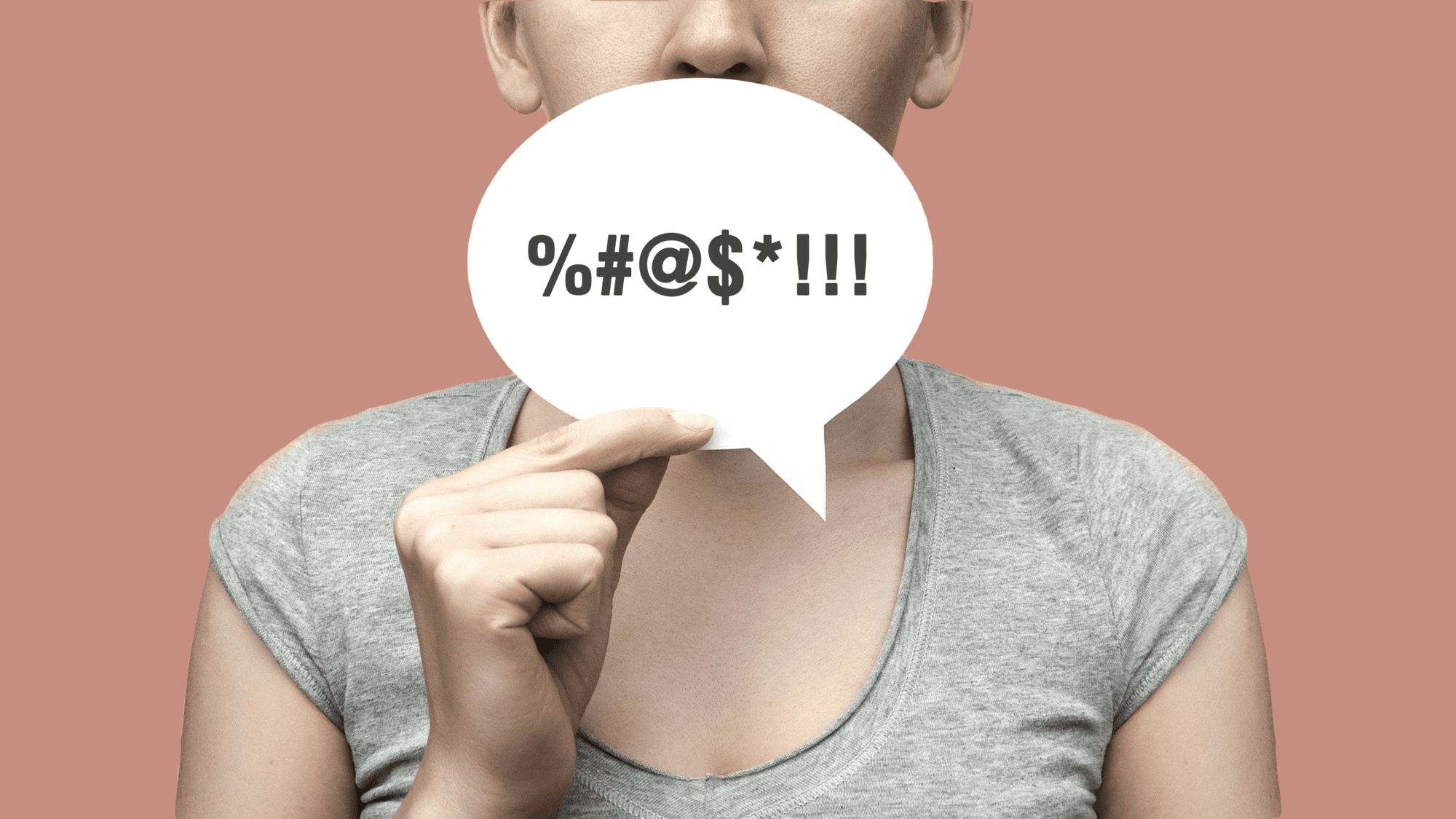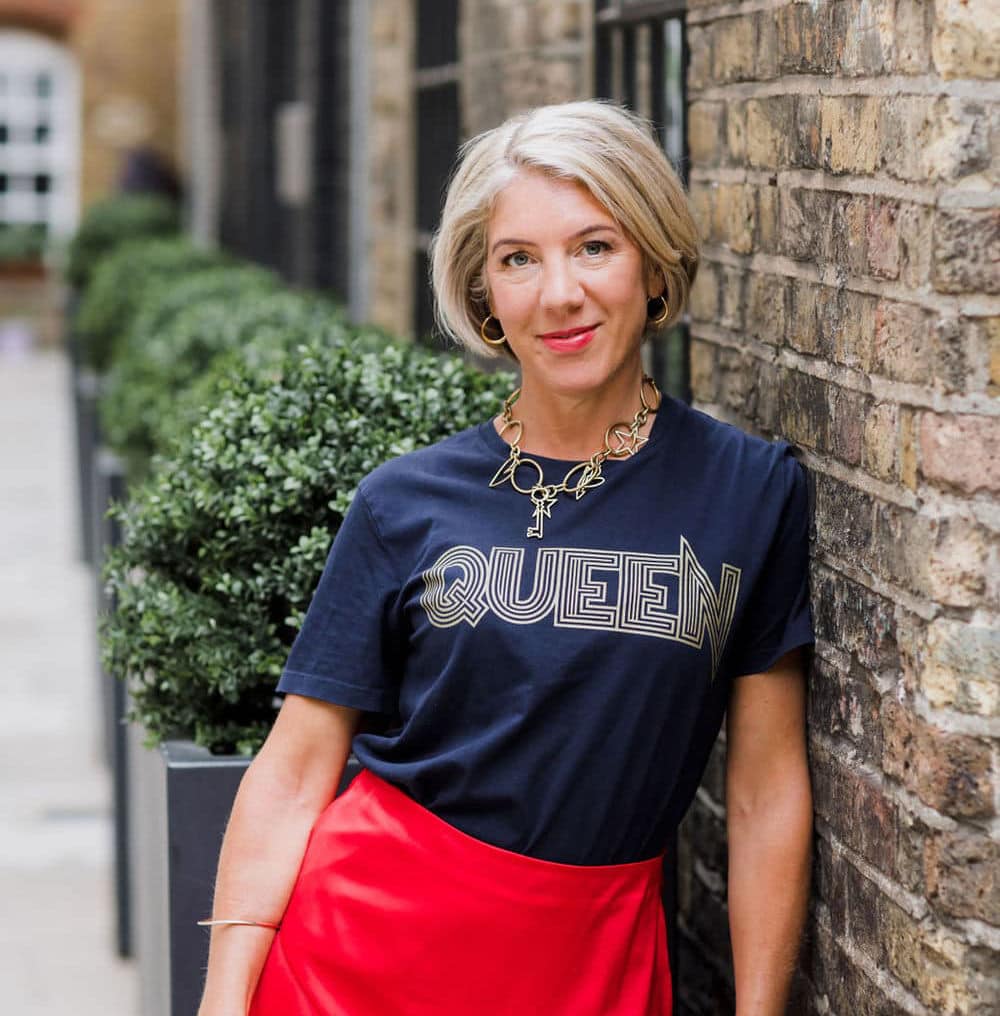
On social media this week, we discussed the topic of swearing, and in particular swearing at work and if it’s acceptable or if it’s just a massive no, no?
If swearing is OK in your workplace, are there any taboos or is it c-bomb central?
Swearing is becoming more and more acceptable in traditional and social media, with F-word peppering magazine articles and puncturing blogs, vlogs and ‘lives’ from entrepreneurs and motivational speakers like Tony Robbins and Gary Vaynerchuk.
But is swearing an effective route to rich self-expression or a lazy shorthand which masks the truth and lowers the tone for everyone?
Although some believe that swearing is a sign that the speaker lacks vocabulary, recent research has found that it may in fact display a more intelligent use of language. A study by psychologists from Marist College found links between how fluent a person is in the English language and how fluent they are in swearing.
A study reported in Science Alert challenged volunteers to think of as many words beginning with a certain letter of the alphabet as they could in one minute. It found that people with greater language skills could generally think of more examples in the allotted time than others.
The researchers then created the swearing fluency task which required volunteers to list as many different swear words as they could think of in a minute. By comparing scores from both the verbal and swearing fluency tasks, it was found that the people who scored highest on the verbal fluency test also tended to do best on the swearing fluency task. The weakest in the verbal fluency test also did poorly on the swearing fluency task.
What this correlation suggests is that swearing isn’t simply a sign of language poverty, lack of general vocabulary, or low intelligence. Instead, swearing appears to be a feature of language that an articulate speaker can use in order to communicate with maximum effectiveness. And actually, some uses of swearing go beyond just communication.
So, what do you think? It was fascinating to hear the reaction on this. On one side was an “absolutely not, never acceptable” view, with Ed Sutcliffe calling it “a very low form of communication used to shock and offend” and on the other, “absolutely – swearing should be used when necessary to portray a feeling or point. As long as it’s never used aggressively.”
The key, I feel, here and what many of you said, is knowing your audience. There’s nothing worse than that person who just swears all the time for the hell of it, but the view seemed to be that if there were a few, purposively placed swear words in the right context and in front of the right audience then it was acceptable.
As Spencer Hudson commented on Instagram, “I believe that language which helps articulate a point is valid, but you’ve got to know the audience, or you may not understand the risk. What’s said ultimately isn’t important, it’s what people think of it. If you judge correctly, then profanity is an important tool, but a misjudge of usage can be disastrous.”
Jackie Handy via LinkedIn agreed: “In my private life I swear often, in my corporate world it’s different. Very much audience/subject dependent. I think swearing for swearing sake is unnecessary but the occasional word that shows I’m human, fallible and open can actually help engagement and rapport.”
There is also a genuine love for swearing out there it seems. “I love well placed swearing. It’s one of my personal joys,” said Haider Imam via LinkedIn. “I think at work, it can contribute to a sense of candour, which is gold dust. For me, as long as it’s playful, in awe, or to purposefully provoke when coaching it’s good. If it’s from anger or frustration, then it’s totally c*cking not.” Teacher Hugh Ogilvie referred to it as a “fantastic stress reliever,” outside the classroom, obviously.
I think most of us are in agreement that swearing can be beneficial, but it totally depends on the context.
But how can you tell if someone’s going to take offence if you don’t know them? Maybe that’s why speaker Bryony Thomas has worked hard to press delete on swear words from the stage, because you can’t tell who’s in a large audience?
It can be hugely nuanced. Even a low-level s-bomb can come out all wrong if accompanied by what might be inadvertently aggressive body language. Likewise, some of the most taboo words can be a great equaliser when accompanied with a cheeky grin, especially to diffuse tension or shake people from a ‘stuck state’, as alluded to by Haider.
In my opinion, I try to avoid swearing at work in the same way as I no longer use the words ‘guys’. But I will call a shit sandwich a shit sandwich, because it’s shit. I’ve tried to call it an S H one T sandwich and it’s just not the same!
And I may throw in the occasional Shut the F…….ront Door which never fails to make me laugh and tends to lighten the mood, whatever the audience.
I guess there are questions about the validity of swearing and what it actually adds to a conversation or talk as rightly brought up by Steven Dowd via LinkedIn.
“I prefer to work with unreserved authentic people, I can see how in a work environment it could be intimidating to be around and in a client situation it feels inappropriate. Personally, I don’t mind if it’s used to emphasise intensity of a point but otherwise there are a tonne of ways to express oneself. I suppose I’d ask… What does swearing add? If you don’t add expletives, what do you lose?”
I’m not here to tell you whether it’s OK to swear in the various situations you find yourself in at work and in life in general or not. Here at Gravitas HQ, our take on it is that it’s about being appropriate and respectful to the people you’re with.
Let’s definitely keep talking about this fascinating topic though – please do let us know your thoughts.




